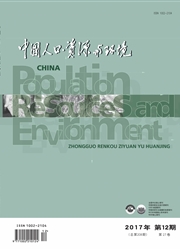

 中文摘要:
中文摘要:
家庭联产承包责任制是改革开放后我国农地制度创新最为重要的成果,已有研究多从产权、绩效、制度变迁等视角对其确立进行解析,但缺乏从文化传统及"官""民"互动等维度的探讨。该文从大、小传统这对概念出发,试图对承包责任制的确立加以解构,认为"小传统"对"大传统"的排斥建构了其确立的微观基础;"大传统"对"小传统"的渐进式接纳确立了其合法性;"大传统"与"小传统"的双向互动则是内嵌于该制度形成过程的文化机理。随着经济社会的发展,该制度在彰显其显著绩效的同时,土地细碎化、集体土地所有权主体虚化等缺陷逐渐凸显,为此家庭联产承包责任制亟需完善,其完善路径应与"三权分置"的格局契合,而这亦可从大、小传统的双向互动得到启示。
 英文摘要:
英文摘要:
As the most important initiative in China's farmland system innovation after the issuing of the reform and open-up policy, Household Contract Responsibility System has undergone various studies from different perspectives such as property right, productivity, changes of system and so on. However, there lacks a perspective from cultural tradition and interaction between officials and farmers. Thus, based on the perceptions of great tradition and small tradtion, this paper tries to deconstruct the establishment of Household Contract Responsibility System. Author of this paper believes that small tradtion constructs micro-foundation by its rejection of great tradition, and ensures its legality by the gradual admission to great tradition, and author also reckons that the interaction between the two traditions lies in the cultural mechanism that forms the system. With the economic and social development in China, this system does not only bring wonderful results and achievements, but also expose such shortages as farm fragmentation and gradual falling out of ownership subject of collective land. Then the system greatly demands for improvement and its path of improvement can be concided with Division of Three Rights of Rual Land,which also can gain some inspirations from the interaction between the two traditions.
 同期刊论文项目
同期刊论文项目
 同项目期刊论文
同项目期刊论文
 期刊信息
期刊信息
